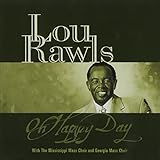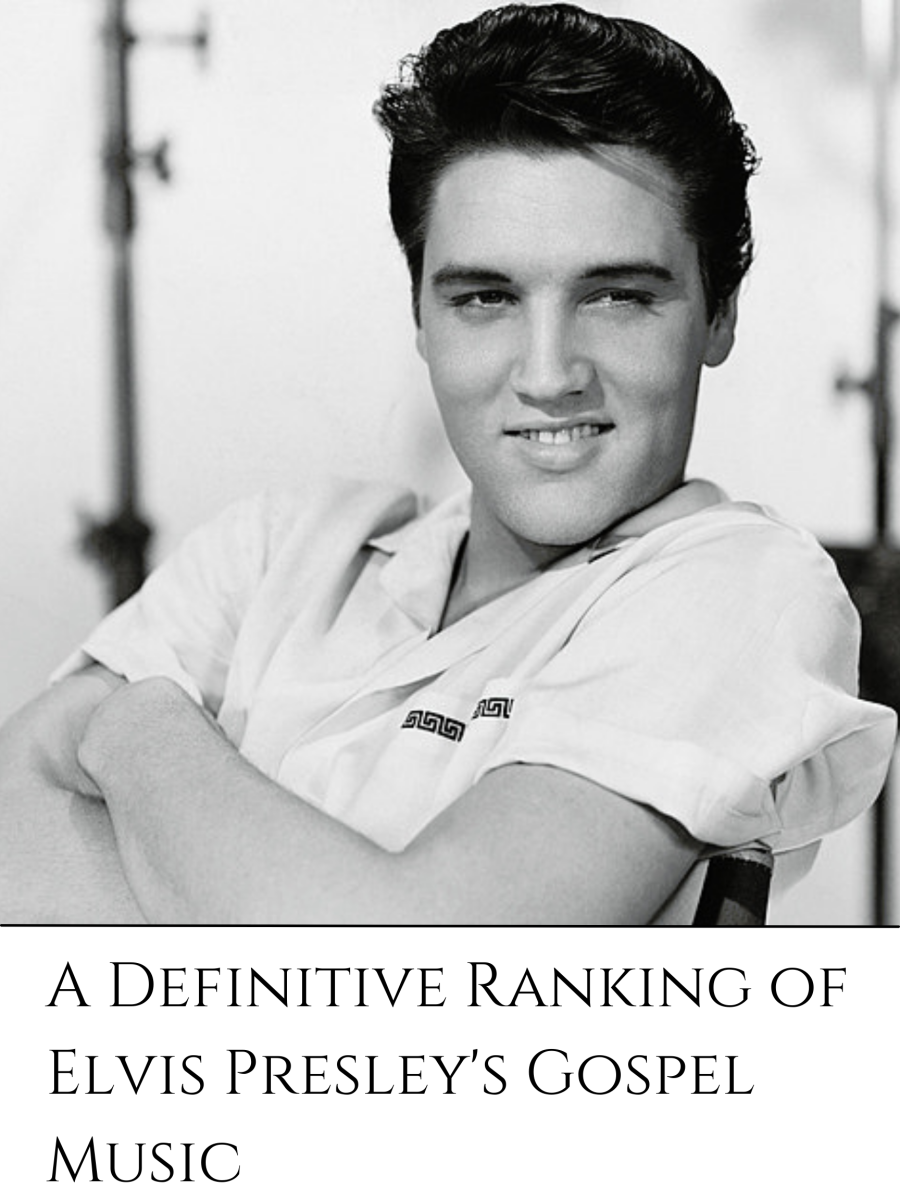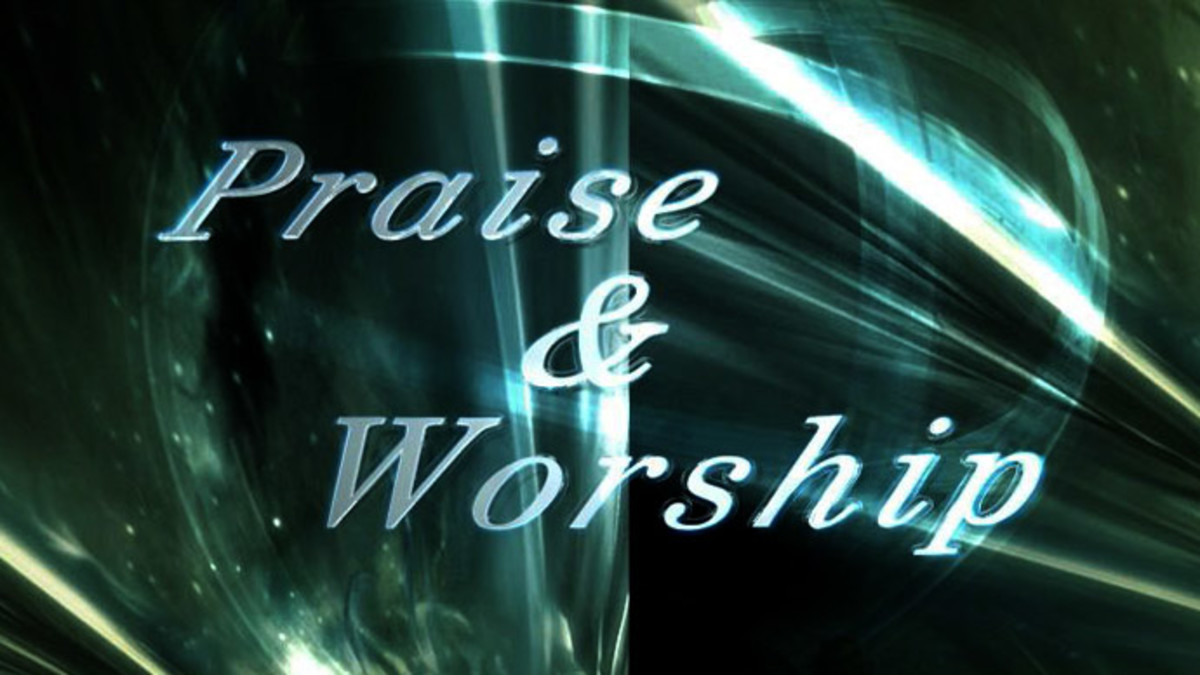MUSIC and SONG = WORSHIP and PRAISE (Part 3) Modern Music & Songs in Religious Practice

"Enter into his gates with thanksgiving, and into his courts with praise: be thankful unto him, and bless his name."
This above portion of the scripture verse (Psalm 100:4 KJV) reminds us of the reason for our worship and praise:
Make a JOYFUL NOISE unto the Lord, ALL YE LANDS. Serve the Lord with GLADNESS: come before his presence WITH SINGING. Know ye that the Lord He is God: it is He that hath made us, and not we ourselves; we are His people, and the sheep of His pasture. ENTER INTO HIS GATES with THANKSGIVING, and INTO HIS COURTS with PRAISE: BE THANKFUL UNTO HIM, and BLESS HIS NAME.
For the LORD is good; His mercy is everlasting; and His truth endureth to all generations. (Psalm 100 KJV)
Here are the points that should be driven home to our hearts over and over: ALL the lands (all people-everyone!) be JOYFUL in the Lord our God, serve Him with GLADNESS, come before Him with SINGING, THANKSGIVING and PRAISE, be THANKFUL to Him and always BLESS His name; because He made us and cares for all our needs, while His MERCY and TRUTH will always be there for everyone to enjoy throughout all time!
SUMMARY:
WORSHIP - "the act and accompanying attitude of giving honor to God through profound respect and gestures of reverance, for the purpose of making supplication to Him."
PRAISE - "the act of expressing admiration and laudation to greatly extol and exhault to make high; the offering of grateful homage (respect to God) in words or song, as an act of worship: for example a hymn of praise to God."
*The following Hub by "Judah's Daughter" wonderfully highlights worship and praise and covers the above practice in beautiful detail: http://hubpages.com/hub/Worship-Him-in-Spirit-and-Truth
MUSIC: and its Biblical Evolution in Worship and Praise
Keeping in mind that Christianity arose from Judaism as fulfillment of the prophecies for the coming Messiah (which Christians believe in Christ Jesus). The life, ministry and sacrifice of Jesus on the cross established the New Covenant and laid the foundation for what would later become the Christian church, as the Church of the New Covenant and the "Bride of Christ".
There was no established "Christian" church however at the time that Jesus lived. It came after Him based on Christ's life and ministry and the New Covenant as ordained by God the Father. The facts do not change however, that Jesus was a Jew, he was called "rabbi" (teacher) and His teachings frequently referred to and quoted the "Old Testament" (or more appropriately the Hebrew "Torah") and the other rabbinical writings that existed then. That was simply all there was to use as examples at this time in history. Likewise, the music and songs of the time reflected what had been traditionally practiced and what was available to that culture in the Middle East.
Granted, Jesus Christ was sent to establish a "new way" of doing things and thus removed the necessity of adhering to the convention of Mosaic laws for the purpose of salvation. But, this does not preclude that the Old Testament practices should simply be "thrown out" altogether. Christ's ministry likewise never really addressed specific ways (or changes) that should be observed in the manner or practice that worship and praise were to be performed, other than:
"Rejoice always, pray continually, give thanks in all circumstances; for this is God’s will for you in Christ Jesus." (1 Thessalonians 5:16-18 NIV)
Taking these things into consideration, have you actually read in scripture how the Hebrew people practiced their faith or how they honored and glorified the Lord God? They are depicted as being a very joyful people who honor God with great reverence in their worship and praise, while likewise doing so with a high degree of enthusiasm.
Maybe these are aspects worth paying more attention to when considering how we criticize the practices of the very people within our own faith (in spite of its factions and divisions). Are we not taught to "love one another" and to reserve this judgment for the Lord?
We live in a more modern era where new inventions and innovations have given us a much larger variety of devices and mediums that we can use to worship and praise God. This allows us more possibilities in the ways to which we can choose to do so that were simply not available at the time of scripture's historical dates or its writing. The following verse phrases it very well:
"Yet a time is coming and has now come when the true worshipers will worship the Father in the Spirit and in truth, for they are the kind of worshipers the Father seeks. God is spirit, and his worshipers must worship in the Spirit and in truth.” (John 4:23-24 NIV)
Praise the LORD! Sing to the LORD a new song, And His praise in the assembly of saints. (Psalm 149:1 NKJV)
Additionally, this part of Psalm 149 is reflecting a call for a "NEW SONG" to be used in the assembly (churches and temples) of the Lord's congregations. Therefore, the invention and writing of newer forms of music and praise is encouraged!
Let the saints be joyful in glory; Let them sing aloud on their beds. Let the high praises of God be in their mouth... (Psalm 149:5-6 NKJV)
Here likewise is reflected a high degree of enthusiasm in worship and praise to the Lord God, not only in the churches and temples but at home (and every aspect of our lives) as well. This Psalm is only one good example yet scripture is filled with many such similar references. I can only imagine how the original followers of the Lord would have taken advantage of these innovative approaches to worship and praise with what is available to them today in our world.
--------------------------------------------------------------------------------------------------------------------------------
-------------------------------------------------------------------------------------------------------
CHRISTIAN HYMNS (continued from PART 2)
SEE: MUSIC and SONG = WORSHIP and PRAISE (Part 2) - for Part 1 on Christian Hymns
Early Christians have sung "psalms, hymns and spiritual songs", both in private devotions and in corporate worship since the times of the Apostles.
When they had sung a hymn, they went out to the Mount of Olives. (Matthew 26:30 NIV)
It is the purpose of worship and praise to glorify God with our gratitude through music and song and to strengthen our spiritual relationship with Him.
Let the message of Christ dwell among you richly as you teach and admonish one another with all wisdom through psalms, hymns, and songs from the Spirit, singing to God with gratitude in your hearts. (Colossians 3:16 NIV)
One definition of a hymn is "...a lyric poem, reverently and devotionally conceived, which is designed to be sung and which expresses the worshipper's attitude toward God or God's purposes in human life. It should be simple and metrical in form, genuinely emotional, poetic and literary in style, spiritual in quality, and in its ideas so direct and so immediately apparent as to unify a congregation while singing it".
Thomas Aquinas, in the introduction to his commentary on the Psalms (in Summa Theologica - written 1265–1274), defined the Christian hymn as: "the praise of God with song; a song is the exultation of the mind dwelling on eternal things, bursting forth in the voice."
Later hymnody in the Western church introduced four-part vocal harmony as the norm, adopting major and minor keys, and hymns came to be led by the pipe organ and sung by choir. These Hymns also share many elements with classical music. Today, more musically inclined congregations will also sing hymns in unison with their church choirs.
"Ave Maria" sung by Celine Dion
Classical and Operatic Hymns
The angelic salutation, "Hail Mary", or (Latin) "Ave Maria" is one of the most well know classic operatic hymns originally written in Latin. The verse incorporates two passages from the Gospel of Luke: "Hail, full of grace, the Lord is with thee." (Luke 1:28) and "Blessed art thou amongst women and blessed is the fruit of thy womb." (Luke 1:42). The hymn has been set to music numerous times, among the most famous settings is the version by Charles Gounod (1859), combining melody and words to Johann Sebastian Bach's first prelude. Another famous setting of Ave Maria was written by Giuseppe Verdi for his 1887 opera Otello. Other settings also exist by Mozart, Byrd, Elgar, Verdi, Saint-Saëns, Rossini, Brahms, Stravinsky, and Schubert for example.
--------------------------------------------------------------------------------------------------------------------------------
OTHER TYPES of WORSHIP and PRAISE TODAY
NONE (Solemn Reserve) - (What?) Yes, it is true that some religious institutions or churches DO NOT even allow music and various songs to be included as part of their observance of worship and praise. This is not the norm however, as the Word of God is repeatedly quoted in saying that the Lord is greatly pleased by our rejoicing, our singing and praises, and in our enthusiastic glorification of Him (as quoted in Psalm 149 above). In fact, scripture even states that enthusiastic spiritual worship is a precursor to the Holy Spirit manifesting Himself on the congregation at hand. Worship commands the presence of God and the Holy Spirit inhabits our praise.
But You are holy, Enthroned in the praises of Israel. (Psalm 22:3 NIV)
It is the right of churches and their congregations to observe their religious practices as they see fit. Likewise, the practice of "Solemness" is not wrong either, for even though rejoicing in lively celebration to honor the Lord may be what He enjoys best, quiet and respectful practices are just as appropriate for forms of worship. He just wants us to WORSHIP HIM, period!
Jesus declared;
“God is spirit, and those who worship Him must worship in spirit and in truth.”
(John 4:24 NIV)
R & B / Soul
Rhythm and blues, often abbreviated to R&B, is a genre of popular African American music that originated in the 1940s at a time when "urbane, rocking, jazz based music with a heavy, insistent beat" was becoming more popular. Starting in the 1950s, after this style of music contributed to the development of rock and roll, the term "R&B" then became used to refer to music styles that developed from and incorporated Electric Blues, as well as Soul and Gospel music.
Now here is a completely unrelated style of music that led to the enrichment and further development of Gospel music. And to reinforce how "ALL THINGS go to serve the Lord":
Your word, LORD, is eternal; it stands firm in the heavens. Your faithfulness continues through all generations; you established the earth, and it endures. Your laws endure to this day, for all things serve you. (Psalm 119:89-91 NIV)
With a good example being the following secularly derived R&B song:
"Ain't No Mountain High Enough"
This Rhythm & Blues love song written by Nickolas Ashford & Valerie Simpson in 1966. The composition was first successful as a 1967 hit single recorded by Marvin Gaye and Tammi Terrell for the Tamla (Motown) label. The song became a hit a second time in 1970, when fellow Motown artist Diana Ross became a number-one hit on the Billboard Hot 100 chart and was nominated for a Grammy Award as a result. Their produced version was more similar to Gospel music with elements of classical music strings, spoken word passages from Dianna Ross, with the Andantes, Jimmy Beavers, and the original composers Ashford and Simpson as backing singers, giving the song a Soul and Gospel vocal element.
As a result, when this version of the song took hold on the Gospel music scene, its lyrics were used and interpreted to reflect our ever enduring pursuit of Jesus Christ, with its title and chorus "Ain't No Mountain High Enough", reflecting how nothing can keep us from the glory of God.
GOSPEL Music
Gospel songs have their origins in rural folk music traditions and for practical purposes can be traced back to the 18th century coming out of an oral tradition as a carryover from the time when many post-Reconstruction African Americans were unable to read. The repetition of the words allowed those who could not read the opportunity to participate in worship. During that time, hymns were lined and repeated in a call and response fashion and it is here that spiritually-themed and work songs emerged.
"Oh Happy Day!"
The actual playing of Gospel music later evolved with its roots in Rhythm & Blues. It is written to express either personal, spiritual or a communal belief regarding Christian life, as well as (in terms of the varying music styles) to give a Christian alternative to mainstream secular music. Like other forms of Christian music, the creation, performance, significance, and even the definition of Gospel music varies according to culture and social context, but all have a common theme of praise, worship and thanks to God, Christ, or the Holy Spirit.
"Oh Happy Day" is a 1967 gospel music arrangement of an 18th century hymn. Recorded by the Edwin Hawkins Singers, it became an international hit in 1969, reaching the top of the pop charts as U.S. #4 and U.K. #2 best song. It has since become a gospel music classic and standard.
"Amazing Grace" - Rhema Marvanne
The popularity of revival singers and the openness of rural churches to this type of music led to the late 19th and early 20th century establishment and advancement of Gospel music recording and publishing houses where it rose to the popularity it experiences today.
"Amazing Grace" is a Christian hymn written by English poet and clergyman John Newton (1725–1807), published in 1779 with a message that forgiveness and redemption are possible regardless of the sins people commit and that the soul can be delivered from despair through the mercy of God. It is now one of the most recognizable songs in the English-speaking world and has likewise become a Gospel classic.
--------------------------------------------------------------------------------------------------------------------------------
FREEDOM from Human Rules in WORSHIP and PRAISE
Scripture does not necessarily reflect WHAT INSTRUMENTS should be used or what is considered appropriate as far as the TYPE OF MUSIC that should be played. It is more important HOW THEY ARE BEING USED to glorify and edify our Lord God in Heaven!
Therefore do not let anyone judge you by what you eat or drink, or with regard to a religious festival, a New Moon celebration or a Sabbath day. These are a shadow of the things that were to come; the reality, however, is found in Christ. Do not let anyone who delights in false humility and the worship of angels disqualify you. Such a person also goes into great detail about what they have seen; they are puffed up with idle notions by their unspiritual mind. They have lost connection with the head, from whom the whole body, supported and held together by its ligaments and sinews, grows as God causes it to grow. Since you died with Christ to the elemental spiritual forces of this world, why, as though you still belonged to the world, do you submit to its rules: “Do not handle! Do not taste! Do not touch!”? These rules, which have to do with things that are all destined to perish with use, are based on merely human commands and teachings. Such regulations indeed have an appearance of wisdom, with their self-imposed worship, their false humility and their harsh treatment of the body, but they lack any value in restraining sensual indulgence. (Colossians 2:16-23 NIV)
The above scripture removes us from the rules imposed by mankind and therefore grants a lot of freedom in how we can observe and practice our styles of worship and praise. It also gives composers, song writers, and musicians a lot of creative license when inventing new songs and melodies to glorify God. This is more in alignment with what the Lord's intentions are for us, as He would want His children to be unrestricted in being able to use the innate gifts and talents that we have in order to better serve Him and glorify His name. All glory goes to God!
--------------------------------------------------------------------------------------------------------------------------------
MODERN CHRISTIAN CONTEMPORARY MUSIC
This genre has grown to include almost every form of music that exists in the secular world today (Blues, Soul, Jazz, County, Rock ballads, Heavy Metal, Rap, Hip-Hop, dance and rhythmic, Neo-classical, etc., etc.) you name it, but specifically as these styles of music are adapted directly to worship and praise while being applied for the purpose of edifying and glorifying God and Jesus Christ our savior. Herein lies complete freedom and flexibility of music choices.
EASY LISTENING - (Steven Curtis Chapman) - "Heaven is the Face"
COUNTRY MUSIC - (Carrie Underwood) - "Jesus Take The Wheel"
POP MUSIC - (Casting Crowns) - "Until the Whole World Hears"
ROCK-N-ROLL MUSIC - (The Newsboys) - "I Am Free"
RAP / HIP HOP - (Lecrae) - "Take Me As I Am"
*The above songs are just a few examples of the wide range and variety of music that is attributed to the worship of our Lord God today.
SUPPLICATION
Another use of song in worship and praise is in SUPPLICATION, whereas the mood of the music takes on a spirit of fervent prayer and petition, asking the Lord for His aid and saving grace to help resolve an issue or to deliver His people from a certain situation.
This form of worship and praise was quite often referred to in the both the Old and New Testaments (SEE Part 2 - Section under "The POWER of WORSHIP and PRAISE" for examples: 2 Chronicles 20:17-22; Acts 16:25-31) http://hubpages.com/hub/MUSIC-and-SONG-WORSHIP-and-PRAISE-2; and this method is frequently used today to raise public awareness, evoke spiritual support, and call attention to the needs of God's children in our world.
Child Slavery and Human Trafficking - (Take No Glory) - "Beautiful Slave"
-------------------------------------------------------------------------------------------------------
MODERN OBSERVANCE of GOOD ORDER in WORSHIP and PRAISE
What then shall we say, brothers and sisters? When you come together, each of you has a hymn, or a word of instruction, a revelation, a tongue or an interpretation. Everything must be done so that the church may be built up. If anyone speaks in a tongue, two - or at the most three - should speak, one at a time, and someone must interpret. If there is no interpreter, the speaker should keep quiet in the church and speak to himself and to God. (1 Corinthians 14:26-28 NIV)
For God is not a God of disorder but of peace - as in all the congregations of the Lord’s people... everything should be done in a fitting and orderly way.
(1 Corinthians 14:33,40 NIV)
WORSHIP and PRAISE ARE the MOST IMPORTANT aspects of our relationship with the Lord God. Think about it... What is it that makes our Father in Heaven most happy? What is it that the Angels do most often in Heaven? (W&P) What are the celestial attendants who are closest to the Throne of Almighty God doing 24/7? (W&P) What were we originally created for? (W&P) When all of our desires and needs have been completely met in the coming Kingdom of the Lord, what will we be doing next? (W&P) When we ultimatley join the Heavenly Hosts in Heaven for all eternity, what will EVERYONE BE DOING? (WORSHIP and PRAISE!). -AMEN
Do you think this might be something good - that we ALL could be doing right now?
-------------------------------------------------------------------------------------------------------
WORSHIP and PRAISE - The Most Important Aspects of Our Realtionship with the LORD GOD! - (Read our Full 3-PART Article Series)
- MUSIC and SONG = WORSHIP and PRAISE (Part 1) Musical Instruments in Scripture
What are the most appropriate types of music and songs that should be used in our gatherings for worship and praise (and of course - What instruments should also be used or not used?). What musical instruments are found and used in scripture? - MUSIC and SONG = WORSHIP and PRAISE (Part 2) Singing as Used in Religious Practice
What songs are used in worship and praise? It seems that the content and use of the music to truly glorify God is much more important than what instruments, songs or types of music are used. - MUSIC and SONG = WORSHIP and PRAISE (Part 3) Modern Music & Songs in Religion
(CURRENT ARTICLE)
--------------------------------------------------------------------------------------------------------------------------------
Christian Contemporary Music
Gospel and Christian Music
Other useful HubPages "Well Worth Reading" on this Topic:
- What Does It Mean To Worship? - by Kebennett1
There are three nouns and five verbs translated worship in the Greek New Testament. Mr. W. E. Vine sums up the conclusion to "worship," "broadly it ("worship," dm) may be regarded as the... - How to Worship God? Understand That Worship Is for God - by Jane Grey
Worship is for God. This seems to be an obvious statement, but it is one that needs to be made anyway. Worship is for God. Or is it so obvious? Today Christians go to church, slide comfortably into their... - Praise and Worship Leader - by darinb
Darin Browne is an internationally known Praise and Worship leader who has been leading worship for over 20 years in a variety of churches across most denominations in many countries around the world. He... - Christian Praise & Worship Songs - by AndrewGee
This is a short guide on Christian praise and worship songs: purpose of worship, how to choose the right songs and how to learn new songs for free before making financial investment. - How to Build a List of Praise & Worship Songs for Worship Leaders - by AndrewGee
Unless you are a professional worship leader (and they do exist-people are paid to do that!) you will likely have to squeeze choosing your list of praise and worship songs along with all the other jobs that...
-------------------------------------------------------------------------------------------------------


Building for the glory of Christ's coming Kingdom!
Here on the HubPages® of The Faith Network, we arlaying down the framework for an extended internet-based Ministry and outreach. More content will be added on a regular basis... We invite you to check back often and see what is new.
The FAITH NETWORK provides and promotes practical Biblical teaching, dedicated devotional topics, relevant faith-based resources, and powerful spiritual insights on matters of faith and everday moral living practices for individuals, churches, charitable organizations, Christ-based businesses, and other ministry related efforts.
While you are browsing, see how other Christian HubPages® Authors are writing useful information and creating successful Hub websites. Also check out the official Hub Page Community on Christianity-The Bible and Jesus.
Pastor's Blog - http://www.ForeverinChrist.org
Ministry Site - http://www.Christ4Ever.org
More information about us here on HubPages: http://hubpages.com/hub/Forever-in-Christ
God bless and see you all soon!










